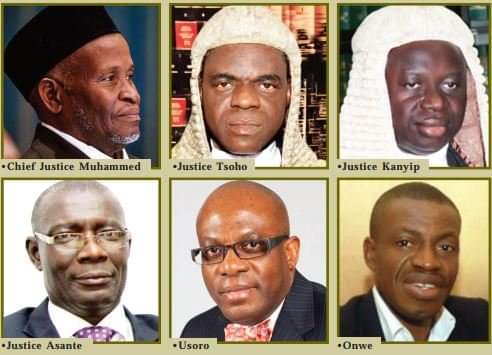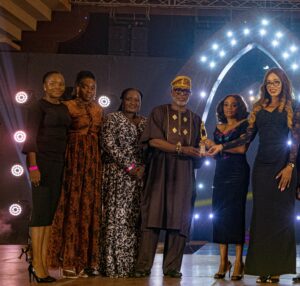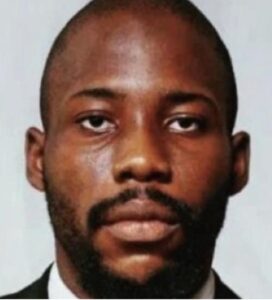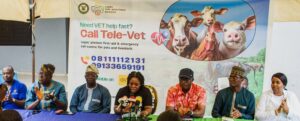
It is a common sight to see physically-challenged lawyers, litigants and witnesses struggling to gain access to courtrooms. But, a group of lawyers are calling for a change, with specific requests to heads or court and policy-makers, writes Deputy News Editor JOSEPH JIBUEZE
FOR ages, uniformity defined the legal profession. Survival was for the fittest. The wall that limits entry and advancement due to disability is yet to be broken, leaving the profession an anachronism in an increasingly diverse society.
But, there are efforts to replace the barriers with bridges of inclusiveness. Lawyers with disabilities (LWDs) no longer want to be denied easy access to the courtrooms.
They want young people with physical challenges to have real hope that there is a path to success in the profession.
A group, the Association of Lawyers with Disabilities in Nigeria (ALDIN), believes that diversity and inclusion are a matter of social justice.
To the group, the legal profession must no longer lag behind others in diversity and inclusion when it should take the lead.
ALDIN has taken its advocacy to the heads of courts. It visited the Chief Judge of the Federal High Court, Justice John Tsoho; the President of the National Industrial Court of Nigeria, Justice Benedict Kanyip and the President of the ECOWAS Community Court of Justice, Justice Edward Asante.
It had also engaged with the Nigerian Bar Association (NBA) and heads of state courts.
‘Need for action’
ALDIN is advocating accessibility to the justice administration system to people with disabilities (PWDs).
The group’s President, Daniel Onwe, said: “People with disabilities are usually not put into consideration in the scheme of affairs in the Nigerian society – hence their interest usually comes as an afterthought.
“For instance, public buildings are usually constructed with steep flights of steps, without considering that there are people on wheelchairs and crutches that would need to access those buildings.
“The modus operandi in our society does not contemplate that there are the blind, the deaf and other people with other disabilities who would require a peculiar format of communication.
“Therefore, people with disabilities seemed abandoned to their fate.
“Our courts, which are the temple of justice, are neither just nor fair to people with disabilities. Court buildings and environment are very inaccessible to people with disabilities.
“People with disabilities who come to the courts, either as counsel or litigants, face severe and demoralising hardship.
“People on wheelchairs, for instance, can only access most courts by either crawling on the floor or being carried in the hand like babies, with the attendant indignity.
“How can the lawyer with a disability be crawling in and out of court and still compete fairly with other lawyers for the patronage of clients?”
What the law says
Sections 3-8 of the Discrimination against Persons with Disabilities (Prohibition) Act, 2019, make it unlawful to have inaccessible public buildings.
It, therefore, borders on criminality for court buildings to be inaccessible to PWDs.
The said Act provides:
A person with disability shall not be discriminated against on the ground of his disability by any person or institution in any manner or circumstance.
A public building shall be constructed with the necessary accessibility aid such as lifts (where necessary), ramps and other facilities that shall make them accessible to and usable by persons with disabilities.
All employers of labour in public organisations shall, as much as possible, have persons with disabilities constituting at least five per cent of their employment.
The group wants an end to the infringement of the right to movement, contrary to Articles 12(1) of the African Charter on Human and People’s Rights.
It wants the enforcement of the rights to freedom of association and to the dignity of the human person, in line with Articles 5 and 10 of the African Charter on Human and People’s Rights.
“When there is no use of sign language at public functions and television programs, it is a violation of the freedom of expression of persons with hearing disability (the deaf) contrary to Articles 9 of The African Charter on Human and People’s Rights.
“When public information is not made available in Braille and other formats accessible to persons with a visual disability (the blind), it violates their freedom of expression guaranteed under Articles 9 of the African Charter.
“There are widespread incidents of discrimination against persons with disabilities.
“Again, if the temple of justice cannot be seen be just to its priests who are persons with disabilities, how will the ordinary man have confidence in getting justice from the said temple of justice?” ALDIN wondered.
Non-functional facilities
According to the ALDIN President, the Federal High Court has a stair chair, which is not functional.
He said: “This leaves a person with a disability at the mercy and availability of staff to access the ground floor through a car pack.
“Furthermore, courts in other divisions of the Federal High Court are still inaccessible.”
Onwe, however, said the Lagos State Judiciary has addressed some of the issues by providing parking spaces for LWDs and making newer court buildings, such as the Ogba Magistrate’s court, accessible.
The demands:
ALDIN wants elevators and ramps to be installed at the divisions of the Federal High Court and National Industrial Court buildings to make them accessible to persons with disabilities, be they lawyers, litigants or witnesses.
The group said there should be parking lots near the court reserved and marked for the use of persons with disabilities in all courts.
This, it said, will minimise instances where persons with disabilities would have to walk long distances from their vehicles to the courtroom.
ALDIN wants sign language interpreters for the deaf, as well as assistive formats of communication for the blind.
This, it said, will aid the communication and functionality of the deaf and the blind in the court.
The group said there are many lawyers with disabilities who are qualified to be judges.
It urged the Federal Government to appoint lawyers with disabilities to the bench.
“This will also be a huge source of inspiration to other persons with disabilities and other disadvantaged persons,” the group said.
The group urged the authorities to consider the employment of more persons with disabilities.
This, it believes, will portray the court as being non-discriminatory
ALDIN said heads of the court must issue practice directions to cater for the peculiarities of counsel and litigants with disabilities.
ALDIN had also appealed to the Nigerian Law School to provide sign language interpreters for deaf students.
In a letter to the Law School Director-General, the group said: “The practice globally is to make the entire gamut of the affairs of the society, including the educational system, inclusive, or accommodating, of persons with disabilities.
“The Nigerian Law School should not be seen to be laid back on this score.”
Need for an inclusive Bar
ALDIN had urged the NBA to address issues that limit their opportunities in the profession, but the association is yet to meet the demands.
A Technical Committee on Conference Planning (TCCP) for the 2020 Annual General Conference has been set up, but LWDs are not represented, despite ALDIN’s request.
The group had called for an amendment of the NBA constitution to get LWDs more involved in running the association’s affairs.
It asked for NBA ‘desks’ on disability issues at the association’s headquarters and branches, but ALDIN’s letters were not replied.
“Lawyers with disabilities (LWDS) are not considered in the allocation of the opportunities that exist in the NBA and the legal profession at large.
“Issues affecting LWDs are relegated to the background either because of negligence or lack of adequate understanding of disability issues.
“We recommend that the NBA establishes a ‘desk’ to be occupied by a Lawyer with Disability (LWD).
“The occupier of the ‘desk’ will be a liaison officer of sorts who will bring to the fore issues that affect LWDs. We recommend that this be replicated at the various branches of the NBA.
“It will help in no small way to address our concerns and enhance inclusivity at the Bar,” ALDIN said.
ALDIN described as enormous the difficulties LWDs face at the NBA annual general conferences, some of which could have been avoided if such lawyers were carried along in the planning process.
The group said: “Virtually nothing about the concerns we have as LWDs are considered in the planning of the conferences.
“We recommend that an LWD – who will be recommended by ALDIN – be a member of the Technical Committee on Conference Planning (TCCP) so that the sensitivities of LWDs will be factored at the planning stage.”
ALDIN called for a deliberate policy to include LWDs in the running of NBA affairs through constitution amendment.
“In our yearnings for an inclusive Bar, we acknowledge the efforts made by the immediate past administration of the NBA in ensuring that LWDs have some sense of belonging.
“The NBA headquarters was structurally adjusted to allow for access of LWDs and some lawyers with disabilities were sponsored to the NBA Annual Conferences in 2017 and 2018.
“It is our plea that this progress be sustained whilst we look forward to more success stories.
Unfulfilled promises?
NBA President Paul Usoro (SAN), while running for the office, had promised to address issues concerning LWDs.
He had promised: “Another category of lawyers whose welfare I will work towards ameliorating, from a professional standpoint, is that of the aged and disabled (sic) lawyers.
“If I am elected as the NBA President, I will work towards achieving better welfare programmes for these categories of lawyers and generally for all lawyers …
“Persons living with disability and the aged have special needs which unfortunately are not generally catered for in our Nigerian environment.
“These needs include access facilities into buildings, toilet facilities, specialised reading and legal practice materials and aids, customised technology aids and facilities.
“My administration as the NBA President will work at installing these facilities at the NBA Secretariat where the model law office would be located.
“We would also open dialogue with the Chief Justice of the Federation and the heads of various courts in the federation and the states on the required modifications for making the courts and the court facilities accessible to and usable by the aged and persons living with a disability.
“More importantly, we shall dialogue constantly with these categories of lawyers to continually understand their needs and how best we can assist in meeting them.”
ALDIN said the NBA under Usoro has largely not kept these promises.
In a statement issued after the 2019 NBA AGC, ALDIN said: “Despite the series of letters written by the ALDIN to the NBA articulating the concerns of her (ALDIN) members with regards to the conference, the NBA failed to factor the peculiar interest of ALDIN members in this year’s conference.
“To say the least, this year’s conference is indeed a roll-back on the progress earlier made by the NBA in the area of disability inclusion.
“For instance, at previous conferences, a limited number of indigent members of ALDIN would be sponsored to the conference, and such sponsorship would cover conference registration, transportation and accommodation.
“This year, it was two days into the conference already, that the NBA, via WhatsApp message, contacted ALDIN, calling for nomination of ALDIN members who would be given registration fee waiver and free lunch. And because of the timing and circumstance, no ALDIN member could take advantage of the said offer.
“In previous years, there were sign language interpreters at the conference; there was none this year.
“This year, lawyers with disabilities had difficulties access both the conference venues and shuttle buses.
“This made some of them break down; others got their mobility aids damaged, and were unable to make it to the conference on subsequent days.”
The group also alleged that while the NBA was taking steps to constitute Young Lawyers’ Forum and Female Lawyers’ Forum, nothing was said about creating any forum to cater to the peculiarities of LWDs.
ALDIN said the NBA flouted the disability law which provides that people living with disabilities should not be discriminated against or subjected to hardship.
“NBA flouted all these laws without scruples. It gives us more concern, that these happened under an NBA President who, during his campaign, passionately promised to alleviate the sufferings of lawyers with disabilities.
“Much as we have an unimpeachable cause of action against the NBA in the circumstance, in keeping with our avowed and unalloyed loyalty to the NBA, we shall restrain ourselves from taking any legal action.
“Also, given our understanding that two wrongs do not make a right, we shall not relent in paying our practising fees and branch dues to the NBA as and when due.”
Usoro did not respond to our reporter’s request for comments.
Texts sent to his WhatsApp indicted they were read, but there was no response as at the time of filing this report.
The heads of court had promised to do all within their means to address the issues raised by ALDIN when the group visited.
Wanted: Effective law enforcement
The Discrimination Against Persons with Disabilities (Prohibition) Act, 2018 was signed on January 23, 2019, following nine years of relentless advocacy by disability rights activists.
The law stipulates a five-year transitional period for modifying public buildings, structures and automobiles to make them accessible and usable for people with disabilities.
ALDIN praised President Muhammadu Buhari for signing the bill into law, especially after previous administrations failed to do so.
“Having signed into existence the said law, it remains for it to be demonstrated that the assent of the bill is not merely intended to score a political point, but rather to positively change the destinies of persons with disabilities in Nigeria forever.
“Therefore, it is expected that the President takes the necessary step towards the implantation of the Act, such as the immediate constitution of the National Commission for Persons with Disabilities (NCPWD).
“This Commission will spearhead the implementation of the Act. Ministries, Departments and Agencies (MDAs) of government have the immediate duty of reserving five per cent of their labour force for qualified persons with disabilities in line with the Act.
“This will enrich our national labour force with the peculiar gifting of persons with disabilities.
“The Disability Act has come to stay and should be implemented to the letter for the good of the generality of Nigerians.
“It is the reasonable expectation, therefore, that Nigerians would willingly comply with the provisions of this Act, considering the good things it holds for everyone,” ALDIN said.












